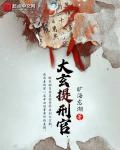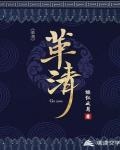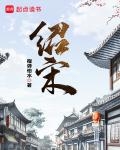Volume 2: Eagle vs. Dragon Chapter 1: The Will of the British Empire
Dear General Dululi:
Thank you for your greetings from afar, everything is fine with us in the Far East.
In the past year, our East India Company's business with the Qing Empire has far exceeded that of previous years, and the annual transaction volume has reached a level that we could not imagine before. Such achievements are unattainable before, and will bring more silk, porcelain and tea to our British Empire. It is just a pity that the trade deficit we expect to change has not changed so far, even though we have imported a considerable amount of opium through some Chinese officials, it still has not changed this situation.
In transactions with Chinese merchants, we mainly traded through 13 trading companies approved by the Qing government - no, there are only nine left now, but Guangzhou people are still used to calling them "13 Hongs". Most of these nine trading companies are located near Baietan in Guangzhou Bay, which is the port where we anchored and where we lived.
I have to complain that we are subject to very strict restrictions where we live in Guangzhou Bay. So far, we are not even allowed to enter the city and can only trade in the suburbs near the sea. We are not even allowed to learn Chinese. There was once a Chinese who was sentenced to death by the Qing Emperor for teaching foreigners Chinese. I really hope that one day the British Empire can change this unfavorable situation.
The nine trading companies mentioned above were allowed to trade with our East India Company only after the special approval of Emperor Qianlong. Emperor Qianlong, at least on the surface, did not seem to care about the silver earned from trading with us, but only issued the permission for these nine companies to trade with an attitude of alms.
Emperor Qianlong's attitude was due to the fact that China's resources were extremely abundant. The daily needs of the Chinese people were already met by China's own production, and there was even a surplus. The silver provided by our East India Company only filled part of the already full treasury. For Emperor Qianlong, this amount of money was almost not worth mentioning.
China occupies a vast territory and has a dazzling variety of products. Most of the porcelain and silk that we British people love are produced in the Jiangnan region. The Jiangsu and Zhejiang regions and Jingdezhen City have long been famous for this. As for tea, Fujian and Anhui provinces produce more.
Having written this, Milton stopped and thought of two people, one was the shrewd and serious Wu Chengjun, and the other was the always smiling Wu Chengjian.
The two brothers really left a very deep impression on him: Wu Chengjun's seriousness and meticulousness made it easy for him to gain the trust of others, which was an important reason why Milton was willing to deepen the cooperative relationship with him and even prepay a large sum of tea money in recent years; and Wu Chengjian was a person who brought happiness to others. He and Wu Chengjian became friends since they first met a few years ago. This young man liked to have fun and brought him a lot of unexpected fun in this distant Eastern country. However, being a business partner... he had never thought about it before.
Milton collected his thoughts and continued writing the letter.
...As for the Guangzhou Bay area where we live, it was not originally famous for commerce in China. On the contrary, the mulberry-based fish ponds developed in this area attracted the attention of other regions in China. Since it can produce a large amount of silk and fish, commerce and business can only be regarded as a bonus and a feature of this area - many Chinese bureaucrats think that is just that.
There are two relatively deserted places very close to Guangzhou Bay, one is called Hong Kong and the other is called Macao. Macao has been occupied by the Portuguese and opened as a port, while Hong Kong, an outlying island, still has few people, but it is relatively convenient to travel with Guangzhou Bay. If it can be developed, it should greatly increase the income of our East India Company. But the premise is that we must obtain the right to rule this island port just like the Portuguese obtained Macao.
In the long run, Hong Kong is definitely more suitable than Macau as a transit port for our Far East trade, because it is larger and has a very good deep-water port - of course, due to the sparse population, we must spend a lot of money and many years to complete the infrastructure work. If Hong Kong cannot be obtained, then replacing Portugal as the ruler of Macau is also a good choice.
Although China is a vast country with abundant resources, its ruling system is still very backward. All decisions come from Emperor Qianlong in the capital and his attendants.
I heard from my missionary friends in Beijing that Emperor Qianlong was a very arbitrary ruler who had many restrictions on friends in Beijing, and even correspondence had to be approved by a special department. But we are very far from Beijing. According to my estimation, if we travel the same distance from London, we can probably pass through France and the Mediterranean and directly reach the other side of Africa.
Therefore, the supervision of Guangzhou Bay was relatively loose. There is a Chinese proverb: "The mountains are high and the emperor is far away", which is very suitable to describe this situation. It is precisely because of this distance that the political leadership has become lax. The Qing government, which does not pay attention to the development of commerce, allowed Guangzhou Bay to develop commerce. In Guangzhou Bay, the status of merchants is relatively higher than that of people in other industries. The role of money in Guangzhou Bay can be unimpeded in many fields.
The Qing government recently sent a minister to manage Guangzhou Bay, named Zhu Gui. I heard from friends in Beijing that Zhu Gui and Heshen, the most favored minister of Emperor Qianlong, were not on good terms. The two ministers were in a very fierce competitive relationship.
Heshen was the most trusted minister of Emperor Qianlong, and had been the prime minister for many years. Although Heshen had a bad reputation, Emperor Qianlong still believed in his own judgment. Emperor Qianlong was very confident in his ability to rule, and believed that he was the greatest monarch in the world. Two years ago, he gave himself a nickname, "Ten Perfect Old Man", which means that he possessed the ten most noble qualities in the world, to promote his achievements, so his trust in Heshen did not diminish at all.
Although Zhu Gui was also a minister trusted and appointed by Emperor Qianlong, he was not as close to Emperor Qianlong as Heshen. Therefore, Zhu Gui could only come to a remote area like Guangzhou Bay to serve as a local official. Moreover, his power was subject to many restrictions. For example, since he was a Han Chinese, he could not control the Manchu military power. At the same time, the largest financial resource of Guangzhou Bay - the Thirteen Hongs I mentioned earlier - was not under his control. It can be said that although Zhu Gui was the largest governor in southern China, his power was not complete.
It is said that the 100,000 troops in Guangzhou Bay were led by a member of a branch royal family named Fuchang. This member of the royal family was the General of Guangzhou, and his actual status - the status of officials in China is sometimes not determined by rank, but by how close they are to the emperor - was higher than that of Zhu Gui, the highest administrative officer of Guangzhou Bay.
Having written this, Milton paused again, thinking about how to continue his wording and how to direct the attention of the British Navy in the direction he wanted to go.
He silently thought about the various comprador merchants he had come into contact with in the past few years, combined the various intelligence they revealed to him, and continued to write:
The emperors of the Qing Dynasty were a nomadic people, so they attached great importance to riding and cavalry. The Qing government's most powerful military force was also composed of this group of people.
Curiously, although the Qing emperor secretly purchased a large number of guns and cannons, he did notand Imperial SouthwestWhen using troops, victory was achieved by using a large number of hot weapons.
However, in government documents, Emperor Qianlong declared that he did not care about the hot weapons we paid as tribute. The Qing government stated that China's main military force was almost all cold weapons. And the Chinese people seemed to believe Huangdi's statement.
Another thing we learned is that Emperor Qianlong did not order the development of new weapons. Instead, he kept declaring that he was very confident in their traditional cavalry. These cavalry were mainly trained in horse riding and archery, which our British Empire had stopped using a hundred years ago. I have to say that I am quite skeptical about the combat effectiveness of these cavalry.
However, we still have to be alert to the two-faced nature of Emperor Qianlong: he must have secretly controlled a considerable number of artillery and muskets. Fortunately, due to this two-faced nature of Emperor Qianlong, China does not seem to have the ability to mass-produce hot weapons. If the empire is prepared to launch military operations in the Far East, then before the military operations, the Qing Empire’s import of hot weapons must be controlled - I know this will affect the interests of the empire and even the entire European arms dealers, but this is an aspect we must consider.
Having written this, he paused again, recalling the information revealed by the compradors he had come into contact with. He was very surprised at the ignorance of most Chinese people about firearms - well, except for Wu Chengjian - it seemed that most Chinese still believed that their Emperor was able to quell the rebellions in the northwest and southwest of the empire mainly by relying on horseback archery.
Milton thought that this might be a "foolish" ruling strategy and an act of distinguishing between Manchus and Han people.
But to his surprise, some senior Chinese officials, especially Han Chinese civil servants, seemed to have been affected by this deception.
What Milton did not expect was that in the near future, Emperor Qianlong's deception of "establishing the country through riding and shooting" would not only spread to senior Han officials, but even senior Manchu officials began to believe it, and even to his descendants - after the lie was told for so long, even the Manchu royal family themselves believed it.
...Let us turn our attention to the key to victory in this era - the navy.
Compared to the British Empire's emphasis on the navy, the Qing government didn't care about their coastline at all. Although they stationed troops in important coastal fortresses, the most important way they defended the coastline was to abandon the coastline, prohibit people from going to sea, and even migrate people to places far away from the sea, turning the coastline into a barren land. They believed that other countries outside the sea had to rely on China's products to survive and develop. In this way, they could make other countries fall into hunger or even chaos, thereby defeating the other side without war.
Such foolish ideas filled the minds of many Manchus - although I believe that Emperor Qianlong himself might not be so foolish, he was already very old, probably over eighty years old. I heard more than one Chinese say that the entire officialdom was already looking forward to a new emperor ascending his throne.
Even in Guangzhou, a place far from the center of the empire, some signs have appeared recently. A major event happened in Guangzhou Bay this autumn. Although my friends in China tried their best to avoid this matter, so that I could not get comprehensive information, I can still infer from various clues that: Beijing’s political situation has undergone a major change, so that Guangzhou has been affected. More specifically, it may be that the Qing government’s finances have problems, because Beijing seems to be in urgent need of withdrawing a large amount of silver from Guangzhou Bay to the north.
This incident reduced the number of trading companies in Guangzhou Bay that were qualified to trade with us from eleven to nine, and we thus lost a very friendly channel for the import of opium.
I will stay here this winter and not go back to London for the time being because I need to find a new agent for the opium trade. I believe I will find one soon because after this incident, the merchants in Guangzhou Bay are more eager for silver than ever before.
When Milton wrote this, Wu Chengjian's face flashed through his mind.
He thought to himself that this knowledgeable and interesting young man would not refuse such a good thing.
... Various signs indicate that when this emperor grows old, or when the old emperor dies and the new emperor just ascends the throne, this Far Eastern empire should be in a period of decline. At this time, our British Empire should make some attempts. Perhaps this will be an important opportunity for us to reverse the poor situation of trade deficit in recent years without relying on opium.
For us, China is a market that we value very much, and we value China's tea, silk, porcelain and other outputs very much, but we cannot tolerate this trade deficit and silver loss that has lasted for hundreds of years.
We long for deeper exchanges with China and hope that China can continue to open up its market. Unfortunately, Emperor Qianlong was not only ambitious but also self-enclosed. He and his ministers were superstitious about everything they saw around them and were unwilling to have more in-depth exchanges with us, let alone open their doors.
We need to change all this, and perhaps the near future is the opportunity God has given us.
If the general wants to understand the situation in China, he can start from Macau. Perhaps without going to the point of war, we can see the strength of the Qing Empire from its reaction.
Of course, if war is necessary, it will be something to look forward to.
Best regards
East India Company
Your Milton






